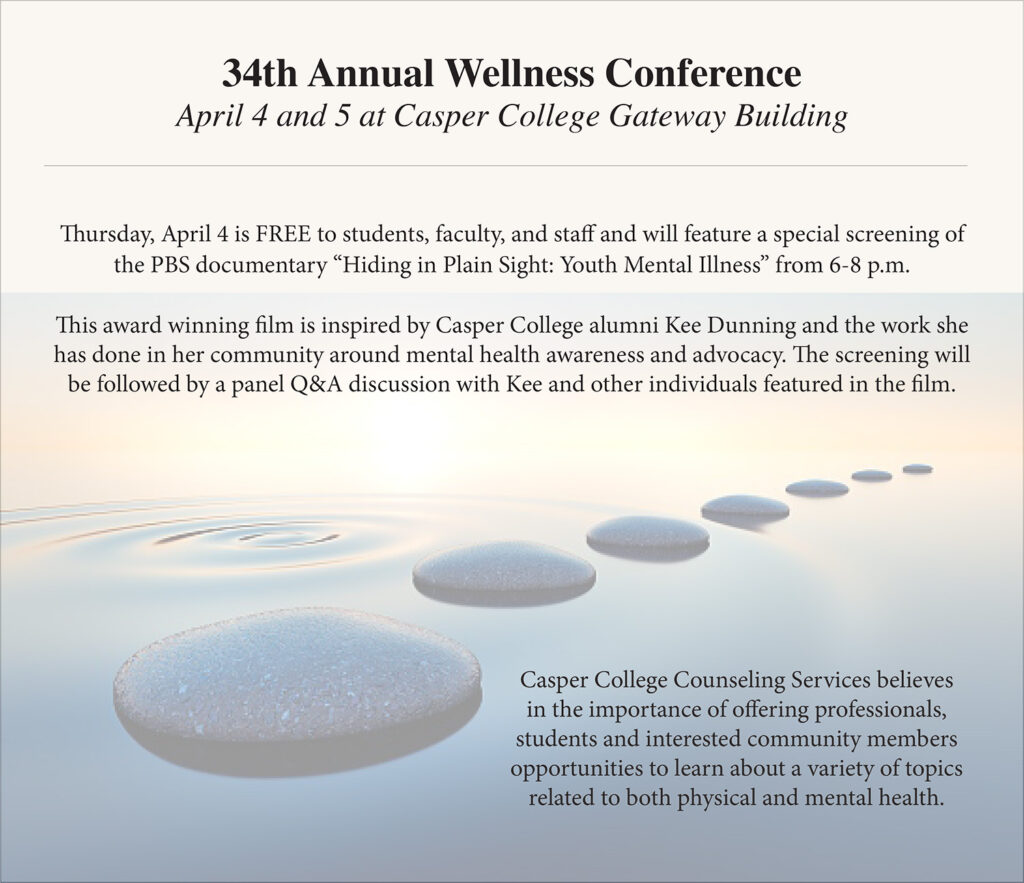Some question the value, others benefit from higher ed
Kyrah Hoppa
Chinook Contributor
Jean Scott
Contributor
Going straight to college after graduating high school, not going to college, or even going back to college — Is it worth it? The age-old debate continues.
According to a 2022 article by Katherine Schaeffer, a research analyst at Pew Research Center, “In February 2020, just before the COVID-19 outbreak began in the U.S., only 1.9% of college graduates ages 25 and older were unemployed… By June 2020, after the pandemic hit, 6.8% of college grads, 10.8% of workers with some college, and 12.2% of high school grads were unemployed.”
Eric Valdez, the public relations art director at Casper College, is a college grad who is using his degree. Valdez earned an associates of arts degree from CC and later went on to get his bachelors of fine arts in Ohio. A job found Valdez once he moved back to Casper, as his friend referred him to an ad and design agency. After many freelance jobs in between, he then worked at Wyoming Medical Center for about 18 years as a full-time designer for advertising and marketing. He is currently employed at CC. With advances in technology and AI, fear and unknown increase within people who are seeking a degree in art. AI is creating the question of what jobs it could possibly take over for humans. Valdez, being an artist before design using computers and AI, recommends his degree to future college students.
“You still need that human connection to the artwork in order for it to be real and for people to kind of sense that mindset and sense of emotion,” Valdez said.
Valdez also explained how it is cheaper for artists, especially digital artists, because the need to buy physical paints, brushes, pencils, etc. is down. All you really need is to pay for a couple of programs and you get all of the colors and design aids that come along with it.
Some may seem skeptical about getting a degree, and they aren’t alone. A 2021 article written by Jennifer McDermott, an author featured in popular news companies such as Forbes, USA Today, Huffington Post, stated, “53.2 million
Americans aren’t sure their college degree was worth the money.”
On the other side of things, there are plenty of college graduates who are not using their degree. Anna Miller is a scholarship coordinator at CC, and she is not using her degree. Miller earned her business administration degree at CC before later pursuing her bachelor’s degree in business administration at the University of Wyoming at Casper. One of the requirements for a scholarship coordinator is to have a bachelor’s degree, but it doesn’t matter the degree’s specialty.
In some parts of her job, she is using the knowledge learned from that specific degree in her daily tasks, but she said she does not use all of her coursework.
“Really, the only thing out of the business admin degree I’m probably not using is like, market analysis, or creating a business or running a business. But everything else
– network(ing), problem solving — I’m doing on a daily basis,” Miller explained.
However, when it came to recommending her degree to students, Miller seemed a little hesitant. Although she uses the knowledge she gained in college during her day to day, she feels there are more beneficial degrees.
She said, “But I may also say the leadership and organization one would be maybe a little more beneficial. Because I think you probably would gain more from that in this current position.”
Miller said she believes experience means just as much if not more than a degree. She said that skills learned means just as much as “a piece of paper” and having the skill to be able to do the job is sufficient enough.
“I kind of feel like when you put a degree limitation on a position, you may not get the best applicants that are out there because they may have the experience, they just may not have gone to school through the process to get that degree,” Miller stated.
The same 2021 article written by McDermott said, “It’s little wonder that such a high percentage of those with degrees think their college wasn’t worth the money, given the 28.2% (14.5 million) of them who are unable to find a job within their field of study.”
Pursuing a degree in college costs a lot of money, so understanding the outcomes of all the investment and time is very important.
Knowing exactly what one is able to do with the degree and the opportunities available without the degree could save money and time.

